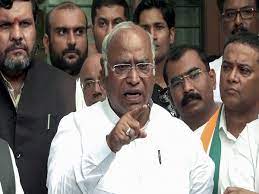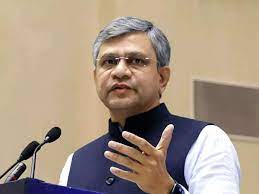The leader of the Congress party emphasized the importance of enhancing railway safety and determining the precise cause of the train accident.

NewDelhi: On Monday, Congress President Mallikarjun Kharge penned a letter to Prime Minister Narendra Modi expressing his objections to the Central Bureau of Investigation (CBI) investigation requested by Railway Minister Ashwini Vaishnaw regarding the Odisha railway disaster, which resulted in the loss of over 275 lives and left more than 1,000 individuals injured.
In the letter directed to the Prime Minister, the Congress President conveyed that both you and Railway Minister Vaishnaw seem reluctant to acknowledge the existence of issues.
According to Kharge, the Railway Minister asserts that the root cause has been identified, yet he has still sought the CBI’s involvement in the investigation. Kharge argues that the CBI’s purpose is to investigate crimes, not rail accidents. He further highlights that the CBI, along with other law enforcement agencies, is unable to hold individuals accountable for technical, institutional, and political shortcomings. Furthermore, Kharge highlights their inadequate technical expertise in railway safety, signalling, and maintenance practices.
Additionally, the Congress leader emphasized the importance of enhancing railway safety and determining the precise cause of the train accident.
He stated that it is incumbent upon the government to investigate and reveal the fundamental factors that contributed to this grave incident.
Kharge conveyed in his letter that the tragic train accident in Balasore, Odisha, has profoundly impacted the nation, standing as one of the most catastrophic incidents in Indian history.
“However, the profound impact on the conscience of every Indian is undeniable due to the tragic loss of countless precious lives. The loss of these lives is irreparable, and no amount of financial compensation or words of sympathy can compensate for this profound tragedy,” he stated.
On Sunday, Railway Minister Vaishnaw announced that the Rail Board has proposed a CBI investigation into the train accident in Balasore.
Vaishnaw stated that the “root cause” of the accident and the individuals responsible for it have been identified.

The collision occurred at approximately 7 pm on Friday near the Bahanaga Bazar station in Balasore, involving the Bengaluru-Howrah Superfast Express, Shalimar-Chennai Central Coromandel Express, and a goods train. This position is roughly 250 kilometres to the south of Kolkata and 170 kilometres to the north of Bhubaneswar.
The tragic triple train crash in Balasore, Odisha, led to around 275 deaths and over 900 injuries. The devastating incident unfolded when the Coromandel Shalimar Express, a passenger train travelling to Chennai, derailed and collided with a goods train, resulting in several coaches overturning. Following this, the Yesvantpur-Howrah Superfast train collided with the derailed coaches of the other two trains. These collisions occurred while both trains were operating at a high speed.
Railway Minister Ashwini Vaishnaw recommends a CBI investigation

On Sunday, Ashwini Vaishnaw, the Union Rail Minister, stated that the Railway Board has proposed a Central Bureau of Investigation (CBI) investigation into the tragic collision involving three trains in Balasore district, Odisha. The incident, which occurred on Friday night, resulted in the unfortunate loss of over 275 lives.
During the Sunday briefing, the railways dismissed the possibility of driver error and system malfunction, suggesting instead the likelihood of “sabotage” and manipulation of the electronic interlocking system as the underlying cause of the triple train accident.
While addressing reporters, Vaishnaw explained that the incident occurred as a result of alterations made to the electronic interlocking and point machine.
Jaya Verma Sinha, a member of the Railway Board’s operation and business development team, explained the functioning of the point machine and the interlocking system.
She stated that the system is designed to be “error proof” and “fail-safe,” although she did not dismiss the possibility of external interference.












